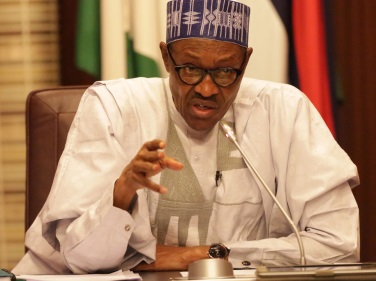Written by the Editorial Board of The Guardian Newspaper
It is impressive that the Presidency has commenced the process for the sale of two presidential aircraft, a Falcons 7X executive jet and a Hawker 4000, in fulfillment of an electoral promise in 2015. President Muhammadu Buhari had during the 2015 campaigns criticised past administrations for keeping a large presidential fleet amid widespread poverty.
The decision to sell the jets was in line with the directive of President Buhari that aircraft in the Presidential Air Fleet should be reduced to cut down on waste.
The reduction would, of course, not end with the sale of the two jets as some helicopters in the fleet have also been handed over to the Nigeria Air Force for its operations. This certainly is commendable.
The Presidential Air Fleet currently has 10 aircraft. These include: Boeing Business Jet (Boeing 737-800 or Nigeria Air Force One), one Gulfstream 550, one Gulfstream V (Gulfstream 500), two Falcons 7X, one Hawker Sidley 4000, two Agusta Westland AW 139 helicopters and two Agusta Westland AW 101 helicopters.
Each of the two Falcons 7X jets was purchased in 2010 by the Federal Government at $51.1million, while the Gulfstream 550 cost $53.3 million, according to disclosures by the former President Olusegun Obasanjo administration.
The price of other planes in the fleet could not be ascertained. But according to official aviation market sources, the factory price of other aircraft in the fleet are: Boeing Business Jet, $59m; HS 4000, $22.9m; Agusta Westland 139, $12m; and Agusta Westland 101, $21m.This brings a combined estimated value of Nigeria’s PAF to $347.4m (N106.13bn). This is a lot of money at such a time as this.
Besides, according to recent reports, the Federal Government had spent N5bn on the 10-aicraft PAF in the last 15 months despite the biting economic recession in the country. The breakdown of the sum showed that N2.3bn was released for PAF by the Office of the Accountant-General of the Federation between May and November 2015.
That figure included releases for personnel costs, overheads and capital expenditure; out of the N5.19bn appropriated for PAF in the 2015 budget. Of the sum, the Presidency said N99.715m was spent on aircraft maintenance, spares and subscription services.
In the same vein, the sum of N98.5m was also spent on operations; N165.373m on training and N85.5m on personnel medicals and overheads.
During the period, according to another report, PAF spent N1.350bn to settle outstanding liabilities carried over from 2014 while N500m was refunded to the NSA for financial support rendered for the maintenance of the Fleet prior to release of funds.
All told, the Presidency’s move to sell the two aircraft is a step in the right direction. Nigeria is one of Africa’s leading economies but it is now in its worst economic crisis in years. The government depends on oil sales for about 70% of its revenues and the slump in global oil prices has hit the country hard.
Meanwhile, while it is unwise to support suggestions that all the planes in the presidential air fleet should be sold now, the presidency must always exercise discretion in the deployment of the aircraft for official and other uses. Most times, citizens cannot understand the rights of the spouses of the president and his men who sometimes use the jets in the presidential fleet for trips that are of no value to the country.
Even in South Africa, the only member of G-20 on the African continent, an attempt to buy new ones has been quite controversial. A planned luxury 4bn rand (£185m) aircraft for South Africa’s Jacob Zuma was widely condemned by the citizens last year. And so were plans by Swaziland’s King Mswati to acquire a second private plane. In contrast, former Malawian President Joyce Banda was widely praised when she auctioned off the official jets in 2013 and vowed to fly commercial or hitch rides with other leaders. Her successor, Peter Mutharika, has, therefore, not been very popular with Malawi’s donors since he keeps complaining that he is spending too much time waiting at airports and should acquire a plane.
The need for American presidential jets, is rarely questioned. But not every country, even in the developed world, has a private jet for its leader.
The first jet for a British prime minister was inaugurated only in July this year. When Tony Blair suggested buying two private jets for official use, later cancelled by his successor, Gordon Brown, the plan was mocked as “Blair Force One”.
The British government even now insists on the £10m proposal to refit a RAF Voyager A330 air-to-air refueling aircraft, which is far more modest than its American counterpart and will, in fact, save public money. It is reported that the new arrangement would cost £2,000 per flying hour, compared with an average £6,700 to use either Royal Squadron planes or a long-haul charter. The Royal Family will also be able to use it and it will be available for refueling duties when not in use. That is a society where the government is in the service of the people.
So, President Buhari deserves commendation. But if it is expedient to sell more planes in the Presidential fleet, so be it, as long as this will not impair operational efficiency of the presidency.
(adsbygoogle = window.adsbygoogle || []).push({});


